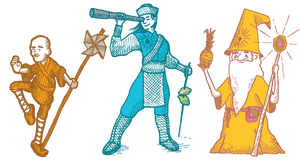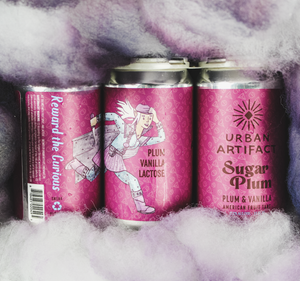Of late, I’ve been surprised at how frequently I’ve been told that beer, or any alcohol for that matter, is a poison. In some regards, I am impressed that the general understanding of human metabolism has reached a level that individuals are able to objectively recognize that ethanol can be toxic. As a Food Scientist with a special passion for consuming knowledge related to human metabolism and for consuming beer, I find myself feeling responsible for spreading an understanding of why beer is a food and not a poison.
Before we categorize beer as a food and not a poison, we must define what each term is. “Food” is any material that is able to be digested, absorbed, and metabolized by a living organism that contributes positively to continuing that organism’s life or growth. Humans consume “foods” for energy. (The unit of measurement of energy is a Calorie and the typical American diet is a recommended 2 Calories. Each Calorie (also known as kilocalorie or kcal) is comprised of 1,000 calories, lowercase “c”, which can cause quite a bit of confusion) We are fortunate to be living in an age with a steady, safe, predictable, and large-scale food supply. Historically, food supply conditions have not been so luxurious, and humans have often had to actively seek safe, calorically dense foods in order to survive. Conditions such as these still exist around the globe, and even here in parts of the United States, but nowhere near to the extent they have historically described the human condition. For many of us in the United States, we actually have to restrict our daily caloric consumption because we have such a caloric surplus all around us. When humans were/are actively seeking calories for energy, ethanol can – in fact – be used to generate calories. Therefore, the case is fairly ‘open and shut’ as to whether or not beer qualifies as a food. It is able to be digested, absorbed, and metabolized in addition to contributing positively to continuing the organism’s life by providing energy.
Why is beer not a ‘poison?’ “Poison” in general is not considered food because it adversely affects the organism rather than helping it live or grow. Poisons do not provide energy for their consumers. Just as any other foods high in saturated fats, sodium, carbohydrate (sugars included,) and even protein can eventually cause a plethora of chronic health concerns including obesity, heart failure, stroke, diabetes, etc., so too can beer (ethanol). The important issue to keep in mind is that ethanol can be metabolized. The ethanol in beer does not get taken up by the liver to be magically turned into urine, killing the liver in the process. People with an understanding of anatomy know the liver’s function is not to create urine, the kidneys create urine. The liver’s function is to serve as a storage depot for glycogen (which regulates blood glucose,) as a storage depot for fat soluble vitamins, and as a filter for drugs in the bloodstream. The liver does not target toxins, it targets all foreign substances, including any medications you take prescribed by a doctor. It is your liver that metabolizes caffeine. Ethanol is indeed a drug, but it is not a poison.
Most consumers are aware that overconsuming ethanol is bad for your liver but they do not make that association with other drugs. In that same vein, many consumers might be aware that overconsuming beer will give you a ‘beer belly’ but they are not as readily associating peanut butter, ‘organic cheese,’ or Amish raised chicken breasts with having a ‘peanut butter belly,’ ‘cheese belly,’ or chicken belly.’ No matter what your food source is, it is a form of energy, and if any food is overconsumed its energy is stored as fat deposits. Keep eating food, keep drinking beer, just do both in moderation. Also, avoid poison.
Cheers,
George Burpee








